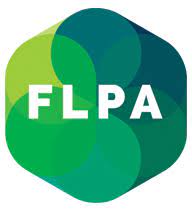What is a child support agreement?
A Child Support Agreement is a legally binding agreement between parents that sets agreed terms that they have reached in terms of child support. Child Support Agreements allow parents to determine child support payments by agreement between them, without the involvement of the child support agency or the need for a formal assessment that would need to be followed.
A Child Support Agreement is a written agreement that ensures that the child’s needs are met and includes expenses for education, healthcare, and general living costs. For the agreement to be enforceable, it must be in writing, signed by both parties and often reviewed by a legal professional to confirm its fairness and compliance with state laws.
A binding Child Support Agreement carries the weight of a court order and can be registered with the family court, providing an extra layer of security and enforceability. By formalising the financial arrangement, both parents can avoid misunderstandings and disputes and focus instead on the well-being of their children.
Why a child support agreement?
Establishing a Child Support Agreement is essential for the well-being and stability of both the child and the parents involved. This legally binding document ensures that the child’s financial needs are met consistently, covering essentials such as education, healthcare, and daily living expenses.
Child Support Agreements, in their various forms, give parties autonomy to agree upon the terms for payment of child support that suit them rather than relying on the child support agency. They also provide certainty that payment will be made and can be collected, more so than a verbal agreement between parents.
A binding Child Support Agreement helps avoid potential disputes by clearly outlining each parent’s obligations, thereby reducing the emotional and financial strain of ongoing conflicts. Child Support Agreements also provide a sense of security and predictability, allowing both parents to plan their finances more effectively. In the interest of your child’s well-being, creating a Child Support Agreement will ultimately benefit the emotional health of your child while enabling both parents to build a cooperative environment as co-parents.
How many types of child support agreements are there?
When navigating the complexities of child support, understanding the various types of Child Support Agreements is fundamental in ensuring that you choose a solution that best fits the needs of your child while matching the unique circumstances of your family.
There are two types of Child Support Agreements recognised by Services Australia. These are Binding Child Support Agreements and Limited Child Support Agreements. Each type offers unique features and benefits tailored to specific circumstances and needs.
A Binding Child Support Agreement is a legally binding contract between parents that is designed to outline the terms and conditions of child support payments. The Child Support Agreement is tailored to provide clear and structured details of the financial expectations and responsibilities of each parent. The ultimate goal is to prioritise the support and well-being of the children involved.
Unlike an informal agreement, a Binding Child Support Agreement must be signed by both parents and requires each parent to seek independent legal advice on the advantages and disadvantages of a Binding Child Support Agreement. Both parties must also have a lawyer on their behalf sign a certificate stating that legal advice was given.
A Limited Child Support Agreement is a written agreement between parents that outlines specific child support payments and terms. This includes the amount, frequency, and method of child support payments. Unlike a Binding Child Support Agreement, it requires a child support assessment from the Department of Human Services to be valid.
This agreement allows for flexibility and can be adjusted to suit changing circumstances without court involvement. However, both parties must consent to any changes. A Limited Child Support Agreement is an efficient way to ensure that the child’s financial needs are met while providing a structured framework that can adapt as the child’s needs evolve. For a Limited Child Support Agreement to be valid, there must be an administrative assessment in place, and the amount of child support expected to be paid must be equal to or greater than the assessment.
What is the difference between a binding child support agreement and a limited child support agreement?
Binding Child Support Agreements do not require a notional assessment by the child support agency, and they can be entered into with or without a child support assessment having taken place. They also offer more flexibility to the parents, as payable amounts can be NIL up to whatever amounts the parents agree to pay.
Limited Child Support Agreements must have a child support assessment in place, and the amount payable under the Limited Child Support Agreement must be equal to or more than the amount payable under the assessment.
Limited Child Support Agreements may also be terminated by a wide range of circumstances, while a Child Support Binding Agreement has very limited circumstances where they can be terminated. The main difference between a Binding Child Support Agreement and a Limited Child Support Agreement is that legal advice is not required to enter into a Limited Child Support Agreement and that an administrative assessment is required to be in place prior to entering into a Limited Child Support Agreement. The Registrar must refuse to accept a Limited Child Support Agreement if no administrative assessment is in place.
How can child support be paid under Limited or Binding Child Support Agreements?
Generally, payments are made in lump sums or periodically, pursuant to the terms of Child Support Agreements as agreed by the parents. If a parent fails to pay child support on time or in full under that agreement, a parent may ask the child support agency to collect child support payable under the agreement on their behalf.
How do I get a Child Support Agreement?
Child Support Agreements require the consent of both parents in order to be made. It is important that you speak to your solicitor and obtain legal advice about what you and the other parents agree on and if there are any points of disagreement between you.
Your solicitor will be able to advise you whether you should pursue a Limited Child Support Agreement or a Binding Child Support Agreement. They may also help you with negotiating the terms of the agreement before finally drafting the agreement on your behalf.
Do you need legal advice?
To create a Child Support Agreement, you must obtain legal advice to ensure that the terms are fair, detailed, and enforceable by both parties. It’s important that both parties have received independent legal advice to help them navigate complex laws, protect their rights, and prioritise your child’s best interests.
A Binding Child Support Agreement requires both parties to have received independent legal advice prior to signature. However, Limited Child Support Agreements do not require independent legal advice. Our family lawyers at Cudmore Legal will provide guidance and help you determine the best course of action in this high-conflict situation. Our trusted family law firm can work with you to develop a Child Support Agreement suited to your needs.














